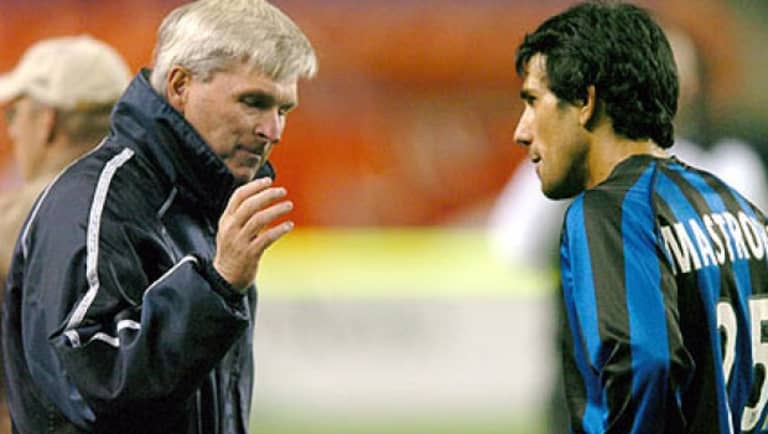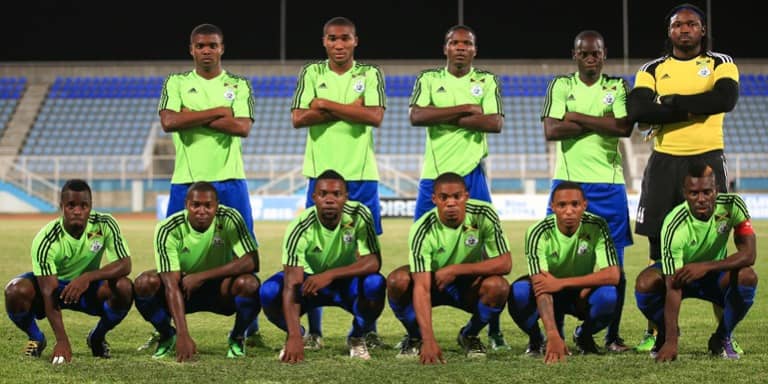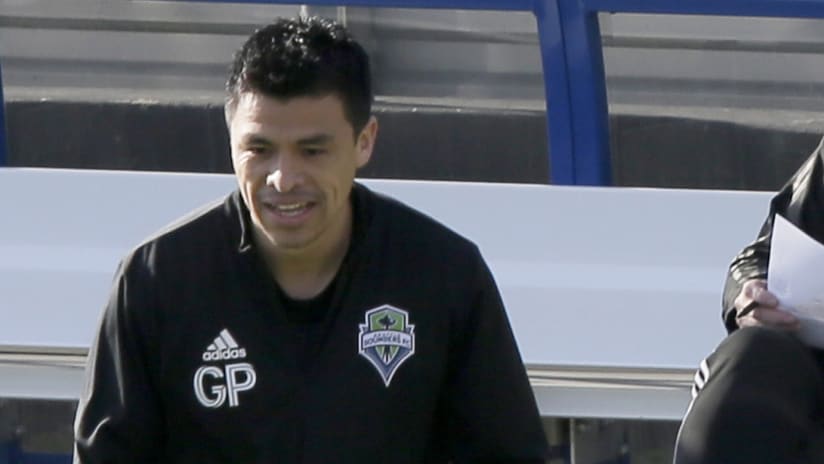MLS teams competing in CONCACAF Champions League occasionally face American or Canadian opponents based abroad: Just ask the Seattle Sounders or Toronto FC about Herculez Gomez.
But it's quite rare to see one standing in the opposing technical area, as D.C. United will when Montego Bay United visit RFK Stadium for a CCL group-stage match on Tuesday night (8 pm ET, FOX Sports 2).
It will be Tim Hankinson's first match in charge of the humble Jamaican side, but hardly his first visit to the old bowl on East Capitol Street – or his first face-off with D.C. coach Ben Olsen.
“I worked in [MLS] for nine years, from the very beginning, in the league office as director of player development, and coached the Project 40 team [now Generation adidas] in its original state before becoming head coach of the Tampa Bay Mutiny and then the Colorado Rapids,” Hankinson told MLSsoccer.com by phone before his new team began the long trip north over the weekend.
“D.C. was always one of the most motivating teams to play against, because certainly in that era they were the elite,” he added. “I know Benny Olsen as a player very well – I mean, I have some gray hairs on my head, probably, because of Benny Olsen, trying to coach against him.”

An architect of entertaining, Carlos Valderrama-led teams in Tampa and Colorado, Hankinson (pictured with Pablo Mastroeni at right) enjoyed plenty of MLS success. But he and Montego Bay are decided underdogs in this week's game. With their domestic league not kicking off until Sept. 6, they are in the midst of preseason, they've already suffered a 3-0 defeat to Panama's Árabe Unido in their CCL debut and the club's modest resources are a far cry from the professional norm.
“Obviously, this game is the haves against the have-nots. A major-league team has 35 front-office [employees]; we've got one. … It just makes every day a challenge,” explained Hankinson. “It's one preparation game vs. maybe 20 or 30. So that's quite a gap.
“I will have had the team two weeks heading into the D.C. game. Not a lot of time, but the group has bonded well and are working hard and learning fast.”
In order to save on travel costs, Hankinson and his team bussed across Jamaica to fly out of Kingston's airport instead of their local one – necessitating a 1 am departure from Montego Bay on Saturday night – and will make an overnight stop in Ft. Lauderdale, Florida.
“Due to financial restraints, local residents [who are] friends of the team will assist in a carpool to transport the team and will prepare home-cooked food in trays to bring to the team at the hotel [in Florida and D.C.],” he said.
“It will be a completely different experience. You'll see the team show up at RFK probably in eight private vehicles to get us there. That's the life of Jamaican football and what the budgets allow and don't allow. But it doesn't affect the players: They're excited and ambitious and motivated.”

Hankinson's current gig is the latest chapter in a globe-trotting career spanning the youth, college, professional and international levels that has seen him coach teams in Iceland, Guatemala and India. After an ownership change in Colorado prompted his departure in 2004, he even worked for free as a volunteer coach at Brazilian club Figueirense FC for six months to learn more about that nation's player development systems.
Now 60, he's gained valuable experience and perspective on his travels. He's putting it to use as he works to show Montego Bay's primarily homegrown squad (pictured at right; photo courtesy of CONCACAF) what's required of them in regional competition.
“I've told this team that if they keep training at the level that they are, trying to play outside the country in international play will be like climbing to the top of a mountain that they've never been to before,” Hankinson said. “That's impossible to ask on a given day, to think that an entire team can do that. But if you train at a high level, a higher tempo, then when you get to those big games, you're already living at that level, so it's just another game.
“If you train at that level and then come back and play in the Jamaican league, where all the other teams continue to train at that lower tempo, then you should be dominant,” he added, “and come back to this tournament next year, and keep building on that.”






